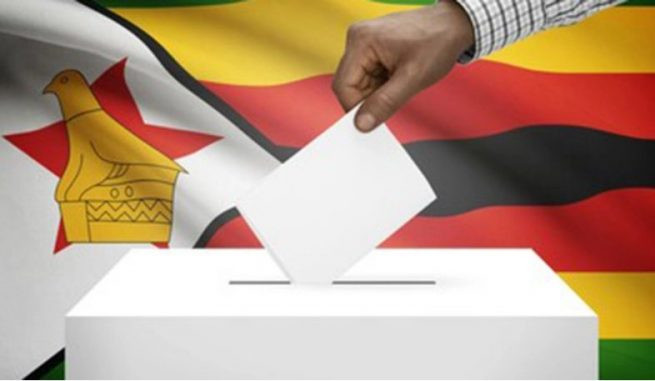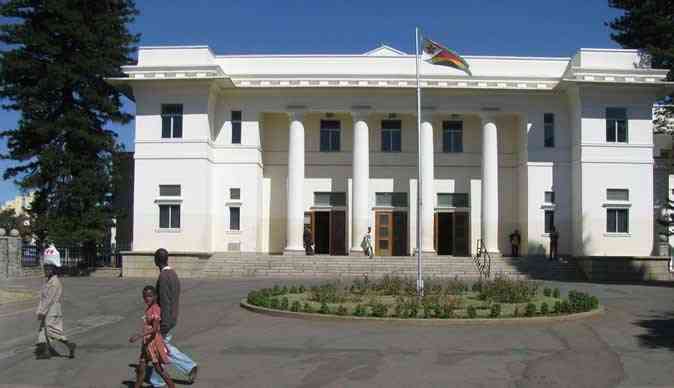
THE imminent harmonised elections in Zimbabwe will continue to resemble a pig’s tail for voters with visual impairment, because of the Electoral Act’s silence on the need to ensure that the ballots of this special category of voters remain secret, private and independent.
The Electoral Act has a provision for having people with visual impairment being assisted to vote by people of their own choice.
We intend to briefly unpack the possible ramifications that are attendant to having persons with visual impairment being assisted to cast their ballots.
The Electoral Act has not been alive to protecting the right of people with visual impairment to participate in the process of elections with independence and privacy given the absence of provisions that make the electoral process accessible to voters with visual impairment.
The process of voter education is conducted by electoral officers without any working knowledge of Braille and disability, sign language and alternative augmentative communication methods.
When electoral officers like voter educators cannot meaningfully engage with people with disabilities in general and persons with visual impairment in particular, these atypical groups of people may have their political participation rights undermined because of lack of access to information which enables them to make sound decisions regarding their political choices.
Zimbabwe has not yet ratified the United Nations Convention on the Rights of Persons with Disabilities (UNCRPD) (2006), because of being a dualist State.
However, the country’s National Disability Policy (2021) has provisions which mirror the international law on disability.
- News in depth: Fears of violent 2023 polls grow as ED fails to deliver on promises
- Come back home, but we have no jobs: Mangwana
- SA must protect foreign nationals within its borders
- Malema apologises for Elvis Nyathi killing
Keep Reading
To that effect, Article 29 of the UNCRPD 2006 could provide direction for the Government of Zimbabwe to help people with disabilities enjoy their political participation rights as it says.
The Article says: “States parties shall guarantee persons with disabilities political rights and the opportunity to enjoy them on an equal basis with others, and shall undertake, among other things, to ensure that persons with disabilities can effectively and fully participate in political and public life on an equal basis with others, directly or through freely chosen representatives, including the right and opportunity for persons with disabilities to vote and be elected.”
UNCRPD 2006 is lucid on States parties making provisions for people with disabilities to enjoy their political rights, yet in Zimbabwe voters with visual impairment continue to be assisted to vote when globalisation is giving us a slew of options that can be fallen back on in order to promote independent and secret voting like assistive technology, the use of voting templates, brailled ballots, online ballot marker tools, voting kiosks and computers.
Arguably, having visually impaired voters being assisted to vote may motivate them to stay away from the polling booth because voting is like sex, it is private.
Staying away from the polling booth, essentially is not good for any eligible voter, whether visually impaired or not because a vote not cast is a future lost.
Every vote counts, because ultimately those votes will constitute critical voices in public policy making which in turn will influence decisional matters in education, health, water and sanitation, social protection and public assistance, issues that are dear to this special category of a people.
Visually impaired voters will in the August 23 harmonised elections be short-changed again despite having raised their issue of the need to vote independently and privately in the previous elections. The matter has not been resolved even by the courts.
It is also unfortunate to note that besides the issue of assisted voting for visually impaired persons in the country, election seasons in Zimbabwe are riddled with political violence, selective application of the law where political perpetrators are concerned, selective application of analysis, gatekeepers intimidating everyday people, polling stations being in remote places, incendiary language and polarisation along political parties.
Given these toxic political seasons, people with disabilities in general and persons with visual impairment would rather stay away from politics.
Essentially, politics is not dirty, it is the politicians rather who are dirty.
As we slowly move towards the harmonised elections, it is worth noting that persons with visual impairment’s rights to vote privately, secretly and independently has remained a pie in the sky.
Arguably, their civil and political rights cannot be enjoyed not because of lack of resources, but due to lack of political will from the political leaders of the day, because a glance at the expenditure pattern of our government is evidential of expanded capabilities and capacities that can enable persons with visual impairment to enjoy exercising their political rights independently and privately.










